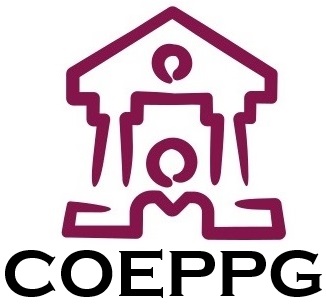
Justice Sabharwal, former Chief Justice of Supreme Court of India (2007) in his article “My Dream of an Ideal Justice Dispensation System” suggested that introducing case and court managements with other measures are necessary for speedy and affordable quality justice. He also recommended that the training needs of judges and judicial staff needs to include court and case managements besides methods to improve their skills in hearing case, taking decisions and writing judgments. Thirteenth Finance Commission Report of Government of India (2009) suggested engagement of professionally qualified court managers for improving case disposal.
Uttarakhand Judicial and Legal Academy, India commissioned an in-service training program for the Judicial Officers of the state to provide managerial and administrative training to the judges of district judiciary. The first batch of thirty-four judges was trained from 9 to 13 Feb 2014. Thirty-four judges were trained in the first batch and they enjoyed participatory method of training conducted by the internal faculty of CPPG as well as external resource persons.
Recognizing the growing interest in interest-free banking popularly termed as Islamic banking in various parts of the world, especially in counters where a large population of Muslims live, we have launched a special training program on Islamic Banking & Finance (IBF). The first training was organized in August, 2013 in New Delhi, The program is the first such executive course offered by a leading management school in the country on Islamic banking, which is considered the largest alternative financial system in the world today, growing at double digit growth rates with a presence in 75 countries and a total size of approximately of $2 trillion. IIM Kashipur decided to offer the programme in view of the huge interest in this subject among various sections and the growing demand for Islamic finance and banking solutions in the country.
According to Prof Zafar U Ahmad, from Lebanese-American American University, Beirut attended the program as a Guest of Honor. According to him - “The programme generated substantial interest and the participants. The search for alternatives to conventional interest-based banking has raised many questions around the world. In the aftermath of the global financial crisis that we encounter today, a number of alternative ways are being discussed. Islamic banking which is basically interest-free banking has thus attained global acceptance in many countries.”
During the program, the participants were introduced to key concepts and principles of IBF including a detailed overview of the rules governing all IBF products and their practical applications besides developing an understanding of the global IBF industry, its key growth drivers, ongoing developments and challenges faced. Participants were able to identify the relative strengths of the IBF system in comparison to the conventional interest based system and will have learn about new growth sectors and opportunities in IBF industry worldwide and in India. The programme was delivered jointly by IIM Kashipur with their knowledge partner Infinity Consultants, Bangalore.
The Lebanese American University (LAU) in Beirut has proposed to conduct its forthcoming Continuing Education Program (CEP) with CPPG. Led by Prof Zafar U Ahmad of LAU, the India Immersion Program brings together a number of stakeholders as follows:
• Indian Chamber of Commerce
• New Delhi State Chamber of Commerce
• NOIDA Chamber of Commerce
• Gurgaon Chamber of Commerce
The major aim of the program is to bring to the foreign students the story of growth and opportunity that emerges from countries like India as one of the fastest growing economies in the world with a sustained annual growth of 8-9%. This program aims at describing and analyzing the key managerial and entrepreneurial challenges for international and multinational firms across India. It will deepen their understandings of the managerial realities of business enterprises extending internationally, and increase their ability to deal systematically with the strategic and operating issues, problems, and opportunities facing them.




